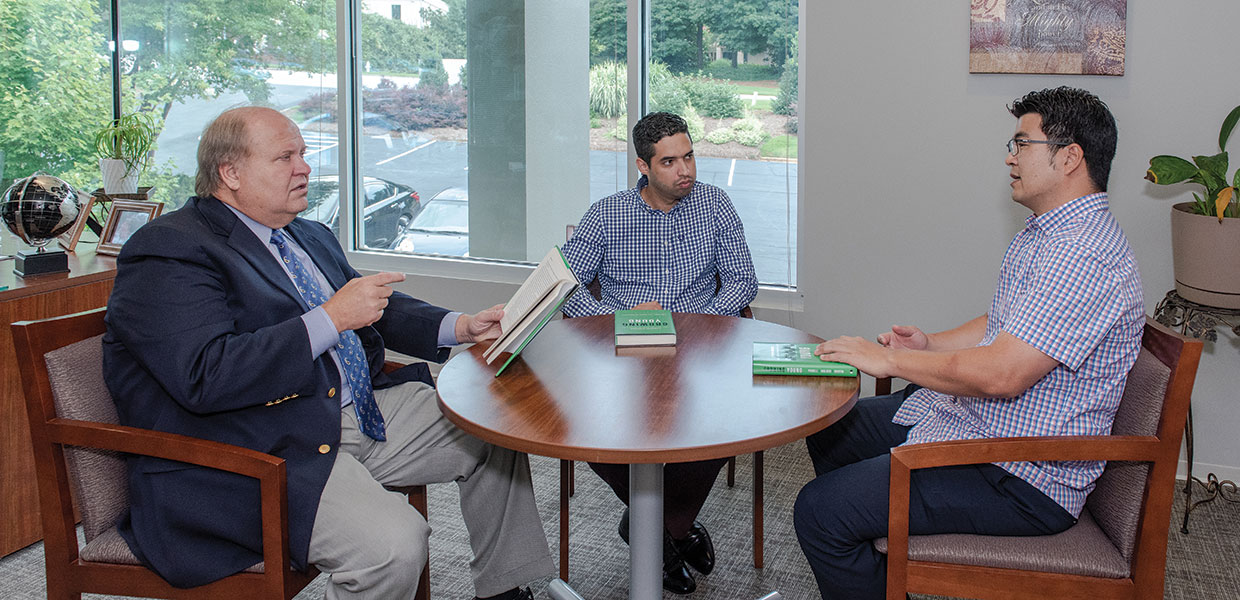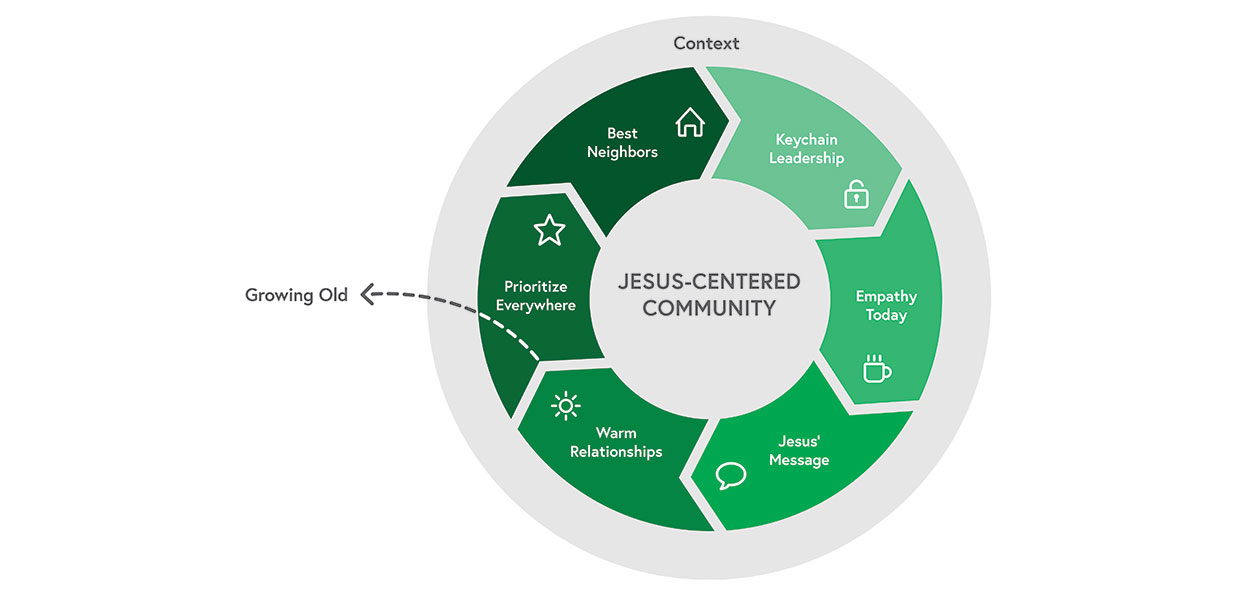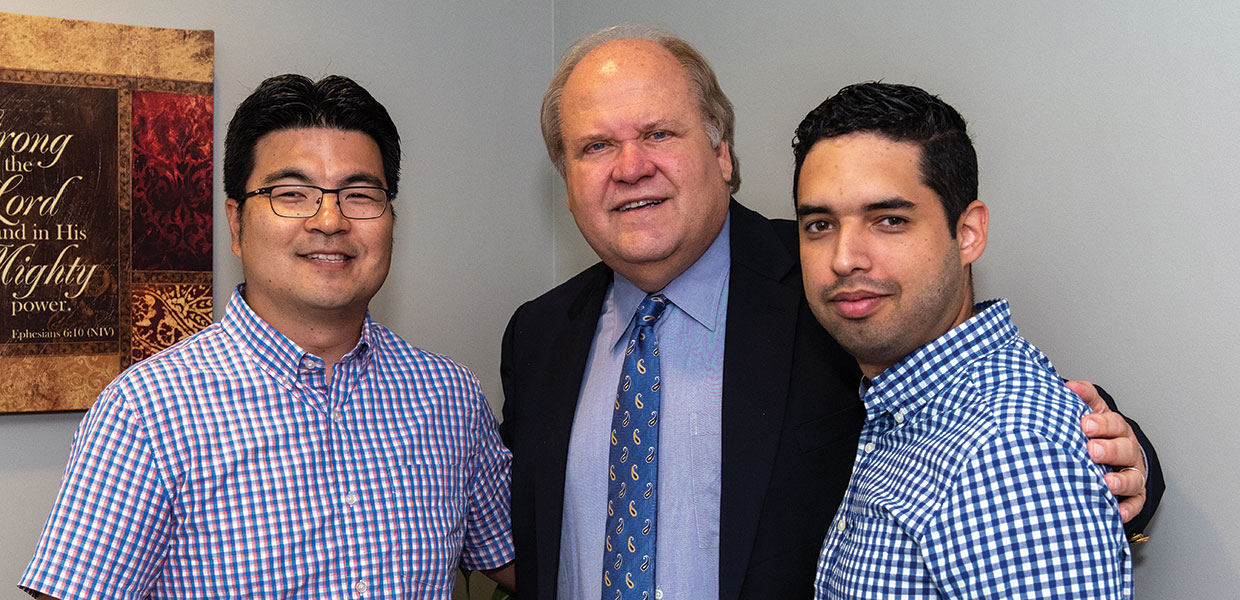
Leonard Fernandez



Leonard Fernandez
Our churches are growing older. Some are reporting that our average membership age is 60 years or more. It’s not that there is anything wrong with that age, but the outlook is not promising if we just continue to age without engaging younger generations in meaningful relationships with local church communities.
“Churches in the North American Division (of Seventh-day Adventists) as a whole really need to think about where we want to be in the next 20, 30 years,” said Justin Yang, senior pastor of Atlanta Korean Church. “If we don’t do something about reaching the next generation, we will become obsolete.”
The Growing Young Adventists (GYA) philosophy is not primarily concerned about age, but rather about hope. No major Christian tradition is growing in the United States today. Much has been written about what the Church is doing wrong with the next generation, but Growing Young Adventists is deliberately committed to discovering what our Church can do right to grow the Kingdom of God.
Directors and researchers at Fuller Youth Institute (FYI) conducted groundbreaking research on more than 250 churches in the United States that are engaging younger generations and retaining young people in active church discipleship and mission. When FYI published their refreshing research, interviews, observations, and analysis in the book Growing Young, it caught the attention of the North American Division (NAD). The NAD created an initiative to join FYI in cohorts to train Growing Young-certified speakers who could lead the Seventh-day Adventist Church in building vibrant church communities. The momentum is growing across the NAD and here in the Southern Union.
Here are some things to ponder about Growing Young Adventists
Some in church leadership might be concerned that engaging young people more actively in the Church will cause major changes, such as different styles of worship and perhaps less theological substance.
First, GYA is not a “program.” Rather, it is a type of culture change that seeks to develop churches into vibrant church communities. GYA is not about just handing leadership and worship responsibilities over to younger generations, but it involves intentional mentoring and collaboration with all generations of Church leadership. Over the years as a Church, we have witnessed many programs come and go. GYA is focused on achieving sustainable strategies that will generate multi- and inter-generational leadership in local church context.
Where would a local church community begin to adopt a process to change from “growing old”?
Every congregation wants to love and be loved by its young people. The Church needs its young people, and the young people need the Church. Without each other, the Church is not complete. The churches across North America that demonstrated vibrant fellowship and younger generation retention in FYI’s research were not based on the following:
- Congregation size
- Trendy church location or region
- Church age
- Denominational affiliation
- Age or “cool status” of pastor
- Large or modern building
- Size of church budget
- Contemporary worship services
- Watered down theology and teaching
- 10. Hyper-entertaining ministry programming
So, we can begin by not repeating strategies which we may have traditionally believed were necessary to grow young.
What strategies did the FYI discover in churches that were vibrant and growing young?
Fuller research discovered that there are six core commitments found in churches that are growing young. The commitments are not sequential, but progressive. No one commitment is more important than the other one is. Surprisingly, the six are not revolutionary, in that the concepts are not new, but synchronized in a practical church life application.
SIX CORE COMMITMENTS FOR GROWING YOUNG
1. Unlock keychain leadership. Pray for God to raise up leaders. Decentralize authority, and intentionally entrust and empower others. Share power with the right people at the right time.
2. Empathize with today’s young people. It starts with listening, and seeking to understand
3. Take Jesus’ message seriously. Asks, “What impact is Jesus making on my life here and now?”
4. Fuel a warm church community, a safe place for questioning and acceptance.
5. Prioritize youth and young families with a tangible church commitment of resources, and programs.
6. Be the best neighbors, to love and identify with local community and globally.
These commitments surround a Jesus-centered community and provide a sustainable platform for growing young.
Do we have any SDA churches where these commitments are being adopted into church leadership practice?
Yes indeed, and increasingly in our Southern Union territory. The Florida Conference Ministerial Department provided the book Growing Young to every pastor. Juan Rodriquez, Florida Conference youth director, and his team conducted nine convocations entitled “Legacy of Hope” throughout Florida, with more than 2,000 leaders in attendance and 1,500 Growing Young books distributed. To date, 17 Florida Conference churches have committed to implementing the Six Core Commitments promoting change. Some are taking advantage of the church assessment tools offered through FYI.
“The main thrust behind Legacy of Hope was helping Church leaders see the importance of leaving a legacy to the next generation,” said Rodriguez. “The main component or essential from the book Growing Young that we focused on was keychain leadership: giving the keys to the next generation, investing in them with our time, and helping them takeover churches.”
Michael Polite, associate chaplain of faith development at Andrews University in Berrien Springs, Michigan, agrees with this approach.
“Any faith movement requires the believer to feel ownership, of not only the traditions, but the long-term health of that movement,” said Polite, who works closely with youth. “So, the only way to instill ownership is if you start communicating to a demographic at a very young age that this is theirs too.”
In the Georgia-Cumberland Conference, the Atlanta Korean Church is a pilot church embracing the Core Commitments and their journey is exciting to witness. Yang and Alex Candelaria, associate pastor, are leading the elders and church leadership in new directions with amazing results.
“There is an active pursuit to reach the next generation, really delegate the leadership to the next generation,” said Yang. “Now, many of the members are willing to walk alongside them, and empower and equip them for the ministry.”
David Kwak is a member of the Atlanta Korean Church who is studying theology at Southern Adventist University in Collegedale, Tennessee. The 18-year-old, who was a children’s pastor at the church, said he encourages young people to glean wisdom from their elders.
“For me, personally, I gain so much wisdom from hearing the generations before me, especially at my church,” said Kwak.
Elsewhere, Gulf States Conference recently conducted a Growing Young Adventists retreat at Camp Alamisco for young adults. Books were distributed, and participants went home with plans to incorporate their learning at their home churches.
What does the future hold for our Adventist churches that want to grow young?
Growing Young Adventists is a learning journey encouraging our churches to love next generations well. We want to cheer, support, and resource congregations who desire the vitality of our young people and foster the relationships that breathe life into the Church family. Focusing on a Jesus-centered community that seeks to make Jesus better known and better loved will attract all people groups.
There is a growing network of churches seeking change. Churches and leaders are gaining insights from continuing conversations and networking best practices for growing young.
We can be confident in the leading of the Holy Spirit as we genuinely seek to become congregations that unashamedly uplift Jesus as Lord and Savior, and grow Church communities that develop lifelong disciples in a thriving environment. And, there’s no better place for that to happen than in our local churches. Growing Young Adventists is about HOPE!
is the youth ministries director at the Southern Union in Norcross, Georgia.
Southern Union | October 2018



Comments are closed.